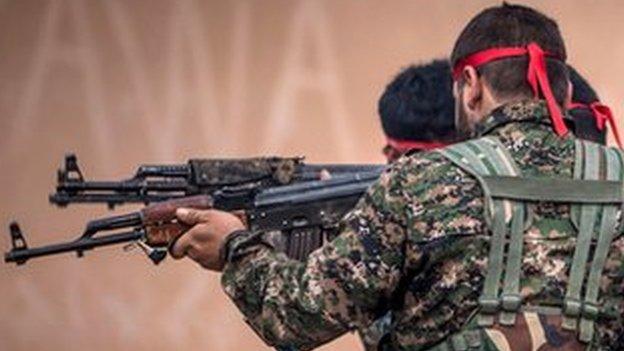Family of ex-UK marine Konstandinos Erik Scurfield says his flame 'burned brightly'
- Published
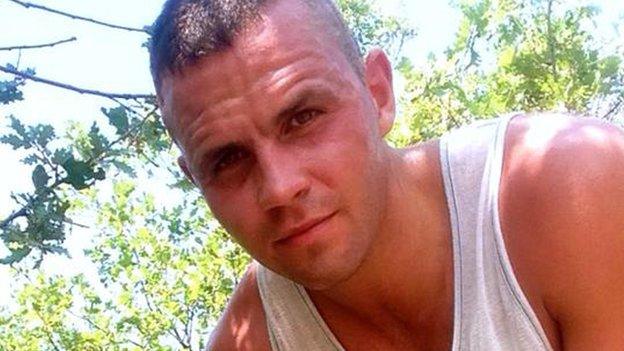
Konstandinos Erik Scurfield was described as "an expert in battlefield medicine"
The family of an ex-Royal Marine killed while fighting with Kurdish forces in Syria have paid tribute, saying his flame burned "briefly but brightly".
Konstandinos Erik Scurfield, 25, from Barnsley, South Yorkshire, is thought to be the first British person killed fighting Islamic State extremists.
He is said to have gone to Syria because he was "horrified by the atrocities being carried out" there.
His family has paid tribute to his "courage, conviction and honour".
Mr Scurfield, an expert in battlefield medicine, is believed to have travelled to Syria three or four months ago.
'Very proud'
Kurdish commander Redor Khalil said Mr Scurfield was killed on Monday while fighting alongside Kurdish forces in the frontline village of Tel Khuzela.
In a statement, his family said: "We are devastated to confirm the death of our son Konstandinos Erik Scurfield in Syria where he went to support the forces opposing Islamic State.
"His flame might have burned briefly but it burned brightly with love, courage, conviction and honour and we are very proud of him."
The family's friends and neighbours described news of Mr Scurfield's death as "heartbreaking".
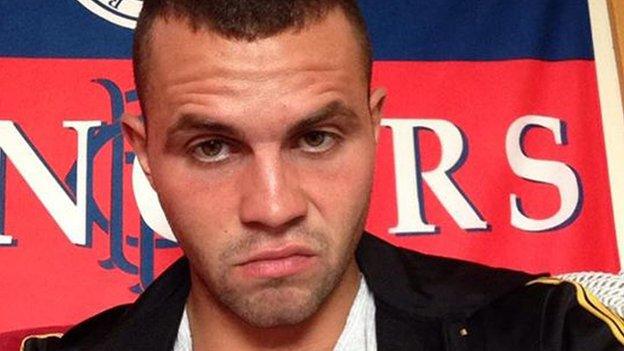
Mr Scurfield is thought to have travelled to Syria three or four months ago
"It doesn't surprise me that he went because he seemed to do everything 100% and he seemed to have deep feelings. He was very conscientious, he was a lovely person," neighbour Mary Jane Hemmings said.
"He was a very strong-willed man, I would say, and he knew what he was about. I am sure he knew what he was doing."
The family's local MP Dan Jarvis said they had approached him a few weeks ago worried about their son's safety.
"Erik was an experienced former Royal Marine who was horrified by the atrocities being carried out by Isis [Islamic State]," he said.
"His family's understanding was that he travelled to Syria hoping to provide medical and humanitarian support as an expert in battlefield medicine."

What do we know about the death?
by Guney Yildiz, BBC Newshour
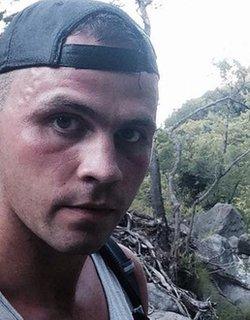
Kurdish military sources in north-eastern Syria told me that Mr Scurfield was killed when the armoured vehicle he was in was hit by a missile launched by the Islamic State militants.
The special mobile guerrilla unit which Mr Scurfield was part of came under attack during an offensive against IS to recapture areas around Til Hamis town in Hasakah province.
Kurdish Popular Protection Units (YPG) forces have recovered his body along with other casualties, and brought the body to Derik, a town in north-eastern corner of Syria, close to Iraqi border.
He joined the YPG, a secular group that has proven to be very effective against IS in Syria and Iraq, on 7 December. The Kurdish sources say that in a video, which is not publicly available yet, Mr Scurfield says he "joined the YPG to fight against IS".

Mr Jarvis, who is Labour MP for Barnsley Central, called on the government to monitor all British citizens who travel to Iraq and Syria to join the fight against IS.
"There have been several reports of other British civilians doing the same thing, but the government confirmed when I recently raised this issue in Parliament that there is currently no system to monitor or record people going to the region with the aim of joining the fight against Isis," he said.
"I wrote to the Foreign Office regarding this issue some weeks ago and will be now following up that letter."
In a statement, the Foreign Office said: "The UK has advised for some time against all travel to Syria, where all UK consular services are suspended.
"As we do not have any representation in Syria it is extremely difficult to get any confirmation of deaths or injuries and our options for supporting British nationals there are extremely limited."
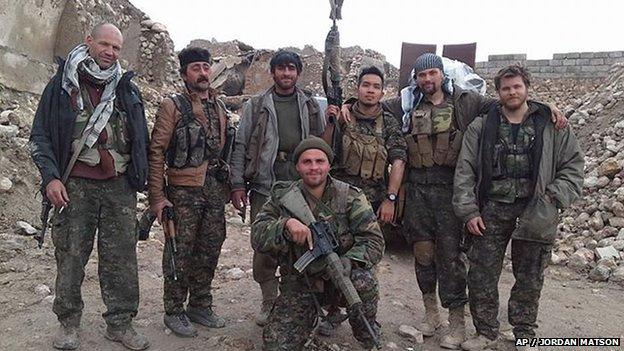
British citizen Konstandinos Erik Scurfield (foreground) with Kurdish fighters and foreign volunteers in Iraq
The Home Office says there are about 600 people in the region "of interest" but have not given a breakdown of what groups they may be associated with.
The BBC understands about 100 Western volunteers - including some Britons - are fighting with the 30,000-strong Kurdish forces.
More than 500 Britons are believed to have travelled to join IS.
BBC security correspondent Frank Gardner said the UK government's position was "probably going to lead to accusations of double standards".
He said if Britons went to Syria and were suspected of trying to join IS they would get their "collar felt at Heathrow" - but there "seems to be a silence about people going to fight on the other side".
- Published4 March 2015
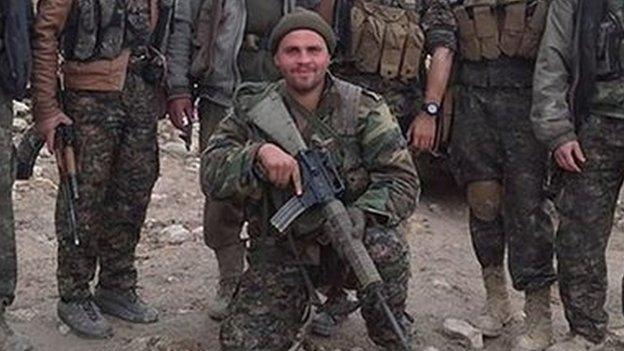
- Published20 February 2015
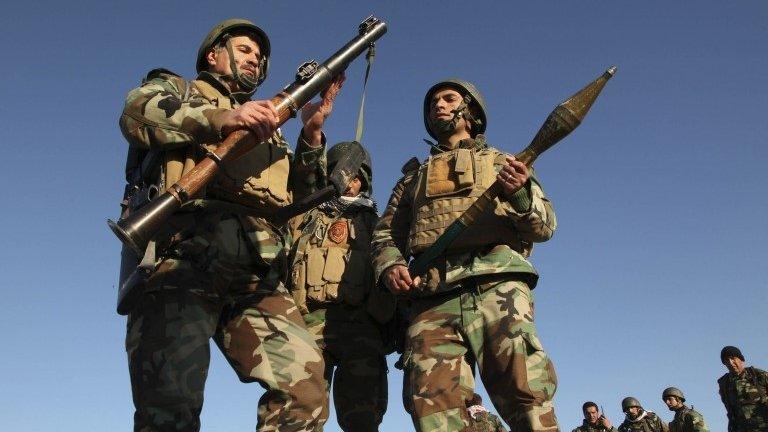
- Published20 June 2014
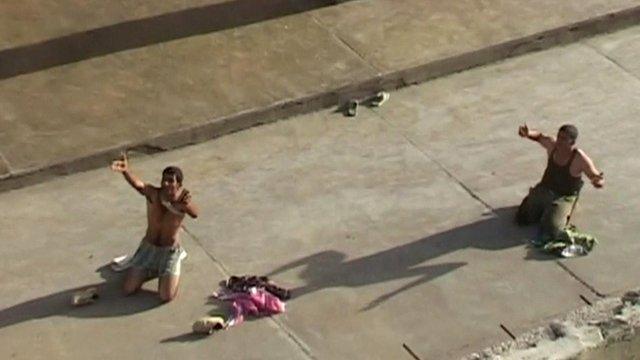
- Published15 October 2019
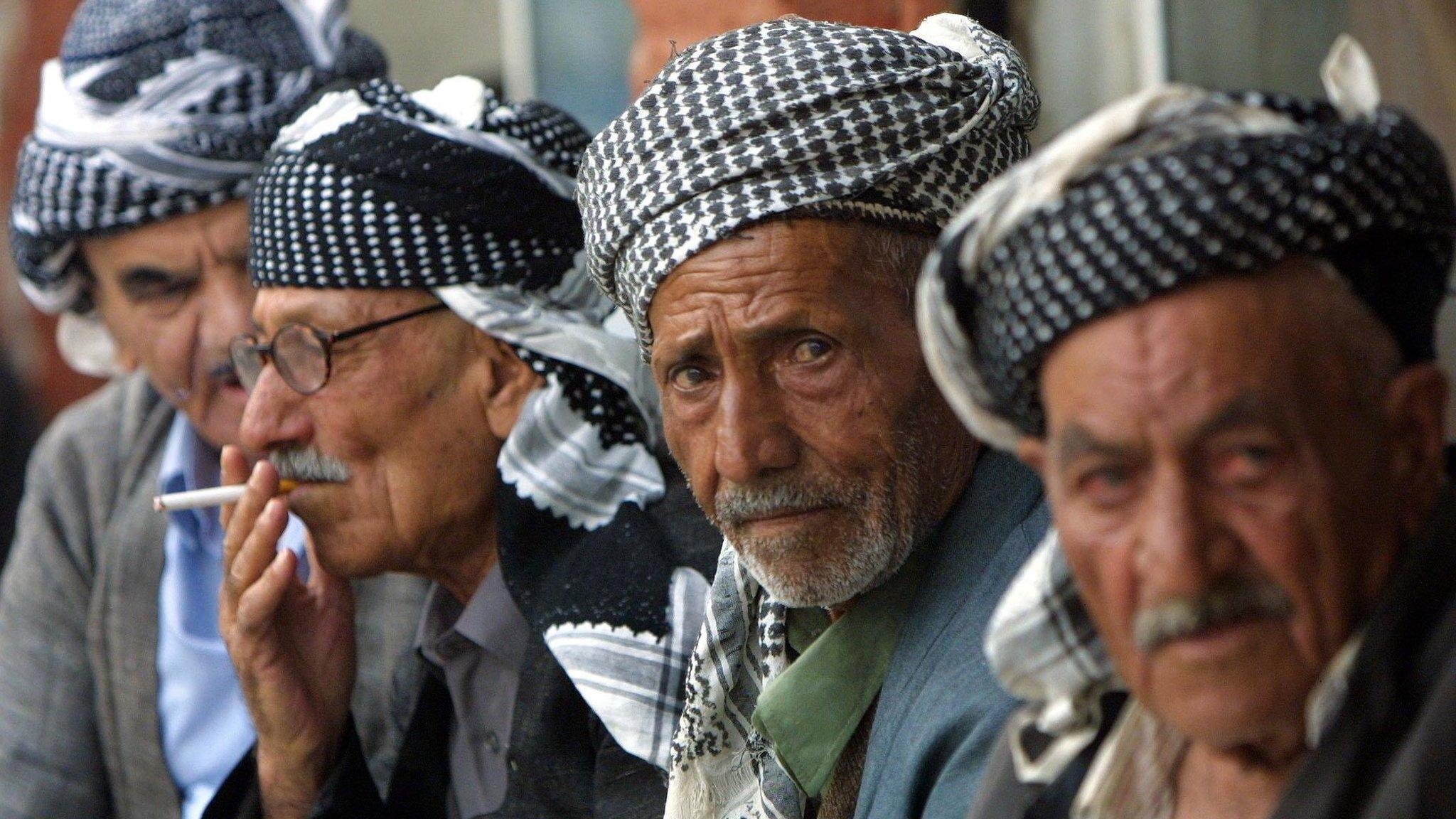
- Published23 February 2015
